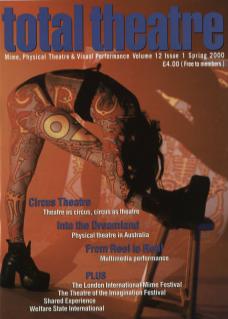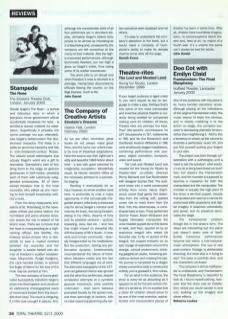As we are often reminded, great books do not always make great films, and the same can unfortunately be true of theatrical adaptations. Here the source was Alan Lightman's witty and beautiful 1993 fiction about time – a text with great potential for imaginative occupation. Wonderfully visual, its fabulist narrative offers all the necessary pointers to a successful staging.
Reciting it dramatically for an hour, however, as whole swathes were here, is profoundly to miss a major opportunity. In this conceptually misguided project, effectively a showcase only for James Seager's narrator (and memory for lines), the young Einstein, sitting in his office, dreams of time and its possible versions – cyclical, repeating, slow, fast, etc – and how this might impact on everyday life; with the poetry of life's rituals – in love, work and human community – textually foregrounded by his meditations. But the production, lacking any performative dynamic, fundamentally misunderstands the nature of translation between media and the fact that different languages are at work. The distinctive topography of the 137 year-old galleried interior was ignored and the other five performers, despite occasional attempts at a symbolic gestural movement, were woefully underused – their silent tableaux prompted literally by the spoken text, and then seemingly at random, with no clear reasoning governing why certain scenarios were visualised and not others.
It's easy to understand the company's attraction to the book, but it would need a company of Complicite's ability to make its delicate charms come alive off the page.

